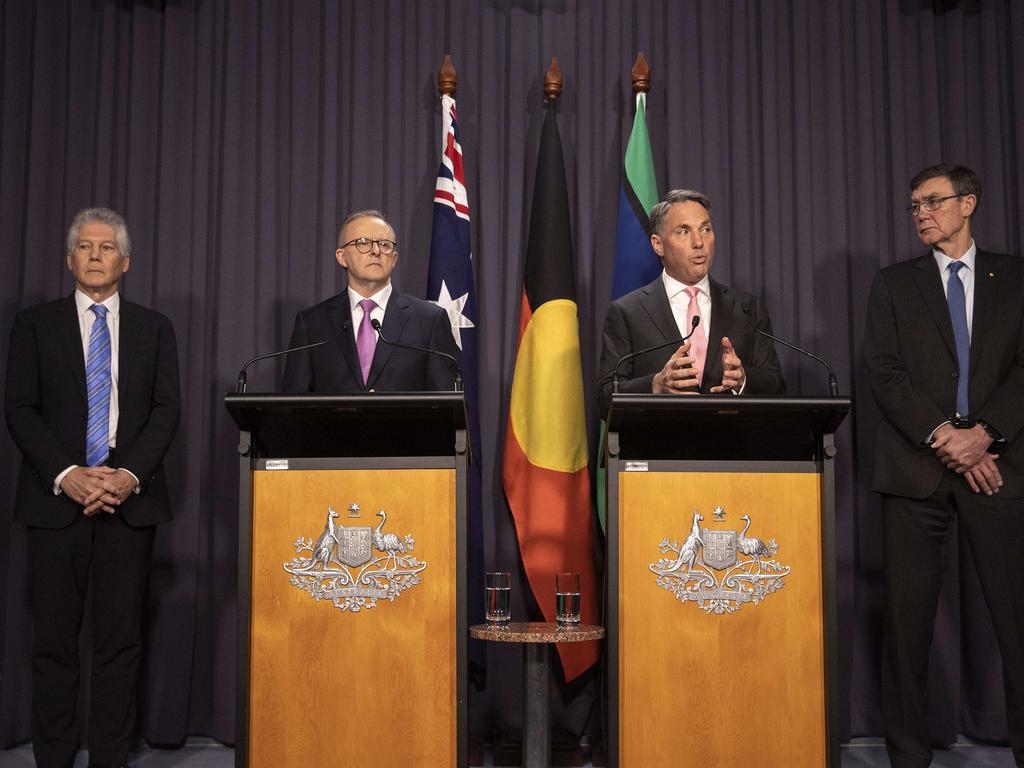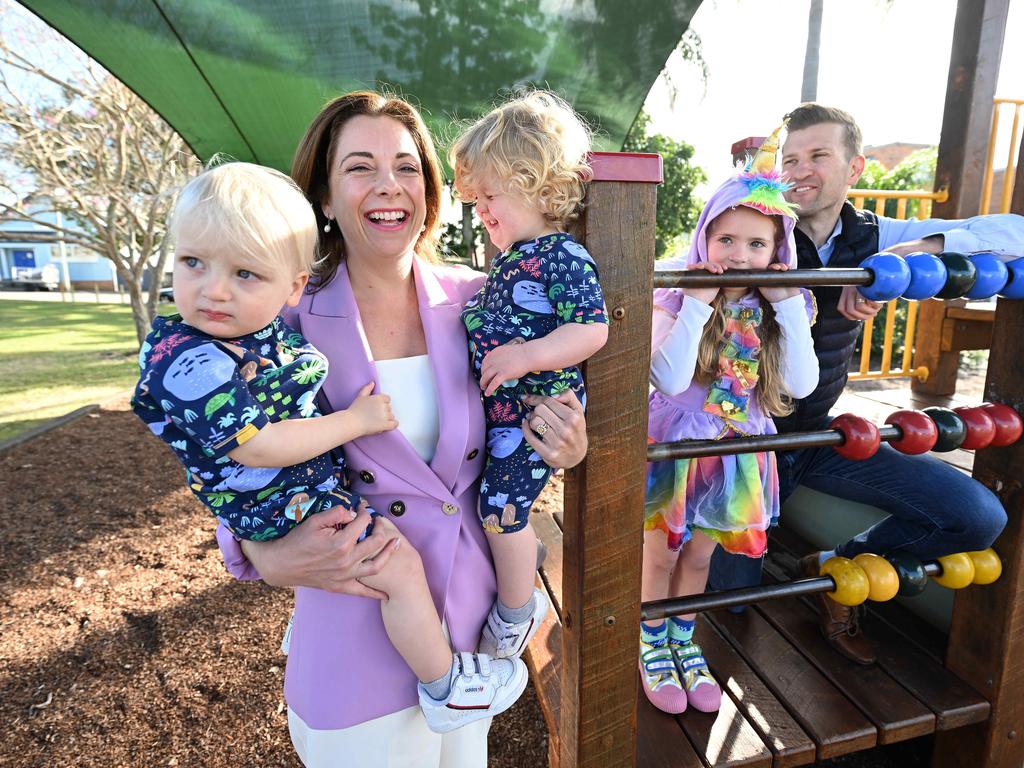Politics of integrity a double-edged sword for Albanese
The PM may have a mandate for inquiries into the Morrison government, but Albanese’s nuclear option has the potential to change politics altogether.

The former Morrison government now faces mounting and damaging inquiries into its failures in policy, public administration and integrity – evidence of a rising phenomenon in national politics where a victorious new government seeks to expose and exploit the defects of its predecessor.
Scott Morrison and his former ministerial colleagues will be busy defending and explaining their behaviour before multiple inquiries. Consider the list – a royal commission announced this week into the Coalition’s unlawful robo-debt scheme; the inquiry into Morrison’s assumption of five extra portfolios conducted by former High Court judge Virginia Bell; the foreshadowed inquiry or royal commission into the previous government’s management of the Covid pandemic; and the creation of a national anti-corruption commission with authority to investigate activity of the former government.
The Morrison government’s blunders left it exposed before the election on integrity and the Albanese government intends to prosecute this campaign across different forums to accentuate the brand damage. It is part of a long-run Labor strategy.
Labor is tapping a rising tide of popular sentiment about integrity. Indeed, there is almost a cult of integrity with many ideas advanced in public debate, from the sensible to the ludicrous. This sentiment is fanned partly by the Morrison government’s secrecy, spending rorts and poor process. It has been a political gift to progressives – Labor, the Greens and the teals – but delivery time is coming and the issue now is how the political system will change.
Anthony Albanese won a mandate at the election for his integrity agenda – both the creation of the national anti-corruption commission and the royal commission into robo-debt.
Nobody should be surprised this week by the robo-debt announcement given the longstanding Labor pledge to investigate the automated debt recovery scheme found last year to be unlawful in the federal court with the judge calling it a “massive failure” and a “shameful chapter” in public administration. The Prime Minister made clear the commission would have power to summon former ministers. This includes Morrison, who as social services minister in 2015 announced the revised scheme, Christian Porter, Alan Tudge and Stuart Robert. Albanese said robo-debt was a “cruel system” and a “human tragedy”.
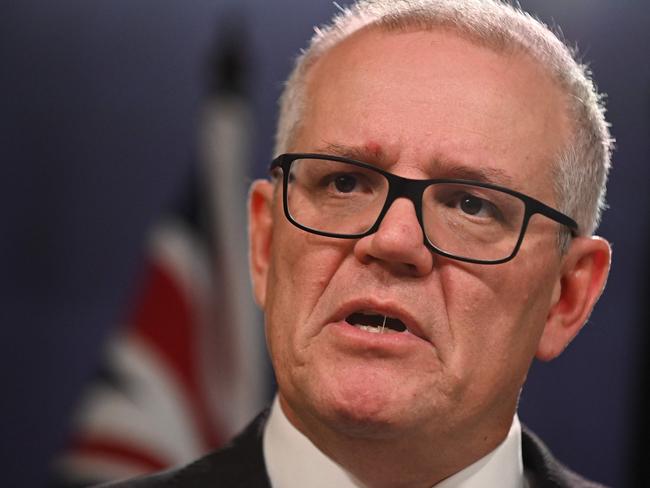
But the nuclear option in political terms is the anti-corruption commission. This has the potential to change Australian politics. It is an unprecedented shift in national governance with its dangers probably existing in equal measure to any benefits.
Attorney-General Mark Dreyfus told the ABC he will introduce the legislation on the first day parliament returns or soon thereafter.
Dreyfus has said the commission will “concentrate not just on MPs but on ministers, on senior public servants”. It will be “very broad based”, possess the powers of a royal commission, and conduct public and private hearings.
In June, Dreyfus said the commission “is going to be able to receive allegations from a whole range of sources” and “it’ll be able to look into the past”. There is one certainty: it will receive submissions seeking investigations into alleged corruption by Morrison government ministers. Given that Albanese consistently branded the Morrison government as “corrupt” during the campaign, Labor has all but invited such submissions.
The commission will be independent. But it will face a critical test: will it be weaponised given its powers can terminate careers and destroy reputations? The Albanese government cannot direct the commission but it is creating a structure that opens the door to investigate the previous government.
Every message from Albanese over the past fortnight reveals a prime minister seizing his chance to discredit the Liberal Party and the Coalition for years on the benchmarks of competent and ethical behaviour. Albanese will be judged by the public interest involved in his inquiries and the findings they produce.
But Peter Dutton has settled on his response – he attacks Albanese for pursuing “witch-hunts”, still thinking like an opposition leader and trying to disguise his failures to address cost-of-living pressures hurting most households.
The element of payback cannot be ignored. After the Abbott government came to office at the 2013 election it launched two royal commissions, into Kevin Rudd’s much criticised home insulation scheme and into trade union governance and corruption. Rudd, Julia Gillard and then ALP leader Bill Shorten were forced to give evidence. Both inquiries were highly political, designed to damage Labor and conspicuously ineffective. They looked even worse this week.
John Howard criticised the Abbott government’s actions, saying: “I’m uneasy about the idea of having royal commissions or inquiries into essentially a political decision on which the public has already delivered a verdict. I don’t think you should ever begin to go down the American path of using the law for narrow targeted political purposes.”
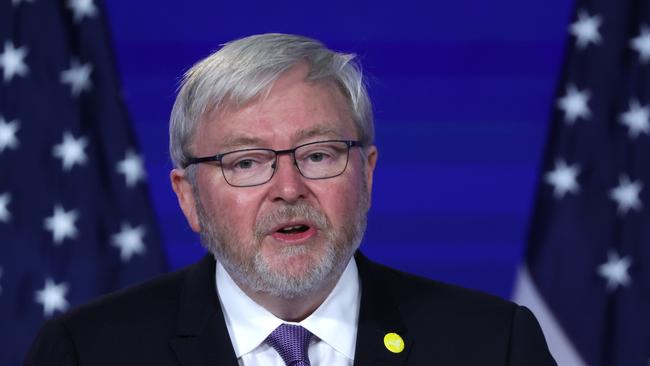
The early test of Albanese’s inquiry strategy is the Morrison case. Albanese’s announcement on Friday that Bell will conduct this inquiry is an appointment beyond reproach. It guarantees a proper, impartial inquiry in which the public can have confidence. Former ministers will obviously co-operate and the terms of reference are appropriate.
The published advice from Solicitor-General Stephen Donaghue found Morrison’s commissions were neither illegal nor unconstitutional but undermined the functioning and principles of responsible government. This was a serious misstep. It damaged parliamentary and public confidence.
The opposition agrees it was wrong. The Opposition Leader said he wouldn’t do it himself. The Liberals have criticised their former leader. The measures required to “fix” the problem and ensure it cannot be repeated are simple, as Donaghue sets out. The solution is no big deal. If Albanese had asked Dutton, the Opposition Leader would probably have agreed on the spot since the Liberals want the thing done and dusted. But that didn’t suit Albanese.
It is true there is a valid argument for another inquiry – to discover how this happened, how officials behaved and what advice was given. The Bell inquiry will be speedy and constructive, and report by November. Public sentiment on this issue still rests with Albanese but he needs to be careful. Bell has been asked to recommend measures to ensure this situation is not repeated and the government can be expected to act promptly on such advice.
The robo-debt royal commission will be grim news for the Liberals. This is a significant failure of administration, accountability and politics. The former government raised debts of $1.76bn against 430,000 people only to be judged as acting without legal authority and causing extensive human misery.
Shorten, as government services spokesman, drove much of the robo-debt effort when Labor was in opposition. In response to a class action the Morrison government had agreed to repay 381,000 people and wipe all debt raised using “income averaging” data to assess welfare payments.
“Why did Minister Tudge in 2016 or 2017 say ‘we will hunt you down’?” Shorten asked this week. “He was proposing to hunt citizens of this country down for debts they didn’t owe using legal power that he didn’t have.” The former government pledged to repay $782m in debts that it had raised and to pay a further $112m in restitution damages and legal costs. Albanese left open the option of more compensation.
The royal commission with an April 2023 reporting date has wide terms of reference and is conducted by former Queensland chief justice Catherine Holmes. It will cover the origin of the arrangement, concerns about legality and fairness and the harm done to vulnerable people guaranteeing a succession of tragic accounts including suicide. The damage to Liberal Party competence and integrity is likely to be serious.
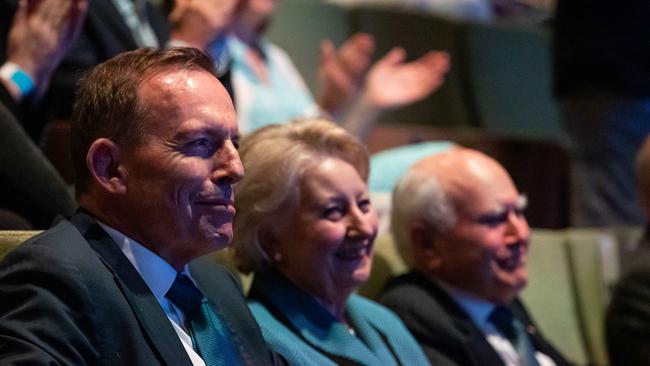
The commission will probe an area of Morrison government vulnerability – why it persisted when there was mounting evidence of complaints and Senate inquiries documenting unjustified debt recovery.
The program used automated methods to recover debts from income recipients supposed to have received more money than their entitlement. It operated on an averaging of income data from the Australian Taxation Office to judge the existence of a debt, with critics saying this “reversed the onus of proof” on Australian citizens.
There is no doubt that overpayments did occur. But the method of recovery drove many welfare recipients into poverty and despair. Justice Bernard Murphy in his Federal Court decision said it should have been obvious to ministers and public servants that the scheme was flawed. But the judge said there was no evidence the government felt the scheme was unlawful at the time of its establishment.
Announcing the royal commission on Thursday, Albanese used the same standard formula – a full investigation was essential “to ensure that it can never, ever, happen again”. Yet this is already established – the scheme is abandoned, the class action is settled, the court had issued its judgment, the former Morrison government had apologised.
This is not going to reoccur.
Labor still has an argument for the royal commission. It can hardly ignore its election promise. Again, however, the real value and justification will depend on the commission’s processes and findings. There is no doubt it will intensify the method by which one government investigates its defeated predecessor with the risk this becomes self-generating.
Albanese, meanwhile, has foreshadowed another major inquiry into federal government management of the pandemic – at an appropriate time in the future – to examine “what went right, what went wrong, how issues could be improved in the future”. Obviously, this will focus on the Morrison government’s performance.
A full investigation of Australia’s response to Covid is essential at some point. But the test of Albanese’s credibility will be whether this inquiry also covers the performance of the states, including the Labor states, since it was the states that were decision-making agents in relation to lockdowns, health restrictions and border closures.
This looms as a fundamental political problem for the Prime Minister. Any full investigation will need collective support from the states – it cannot proceed on any other basis. Will the Labor states agree? Can you imagine a re-elected Victorian premier Daniel Andrews agreeing, short of terms of reference that he finds satisfactory?
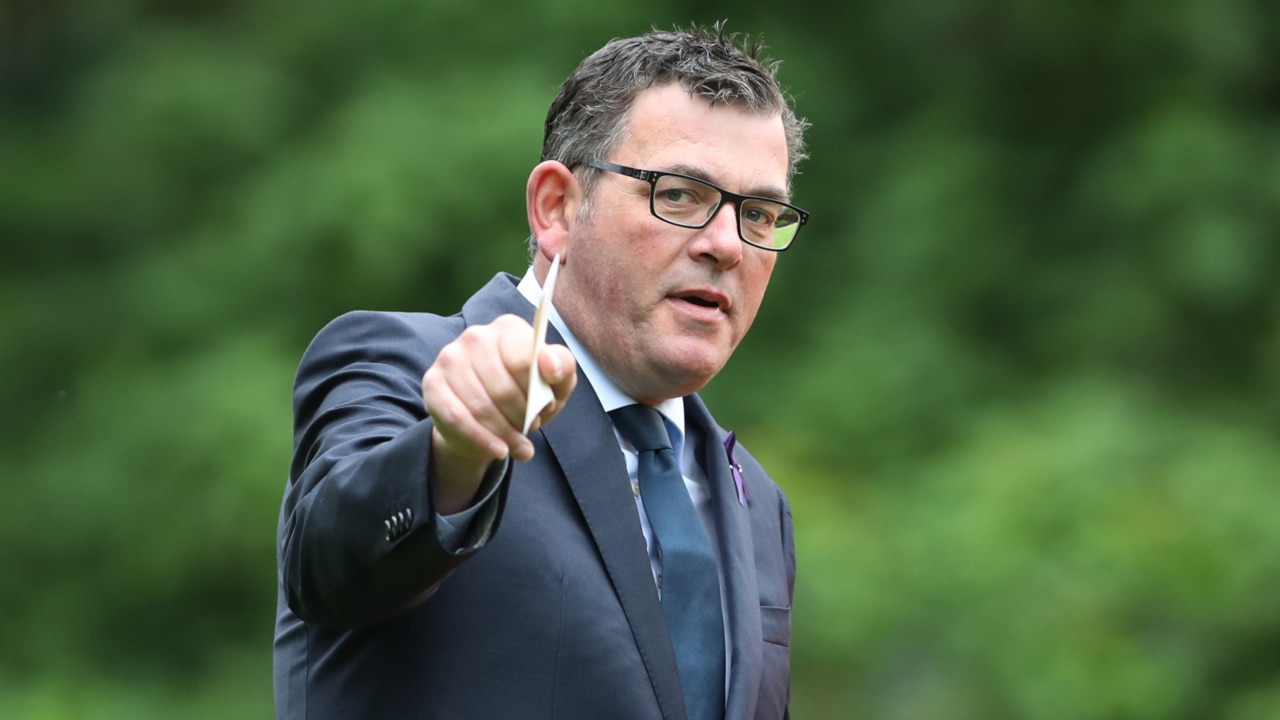
Albanese needs to beware. Any inquiry limited to federal actions – essentially an investigation of Morrison government decisions – would be incomplete, not credible, bordering on a sham and designed to safeguard Labor political interests. Morrison has flagged this point, saying he would assist a “genuine process” to learn from the pandemic but would expect any inquiry to extend to the states and territories.
Albanese will have time to sort this. His problem is that the pandemic inquiry is needed but must also probe Labor’s performance since Labor ran most state and territory governments.
Albanese will find the politics of integrity is a double-edged sword. He will find over time it applies more to his government than the former Morrison government simply because the Coalition performance is yesterday’s news.
The form of anti-corruption commission that Labor legislates will become an instrument that can be deployed against Labor. If the Labor cabinet does not factor this consideration into its deliberations then it has succumbed to folly and naivety.
The lesson of recent years is that standards and ethics in Australian national government need to be reviewed and improved. This is easier said than done.
The test for Albanese will be sorting out worthwhile improvements from the nonsense. A classic of the latter was the recent Grattan Institute report called New Politics: A Better Process for Public Appointments.
While well meaning, it typifies the central defect in the current debate – that power must be stripped from ministers and governments and that integrity can be guaranteed by the investing so-called independent figures with vast new legislative powers.
In its report Grattan wants to create a new public appointments commissioner that assesses applicants for public appointment against defined criteria and gives the minister a shortlist from which the minister or cabinet must choose. This would be embodied in law and the government would need to report to parliament annually on compliance.
No Labor or Coalition government would accept this scheme. It would create more problems than it seeks to solve. But it typifies the current national mood of dissatisfaction with the political system and the search for improvements.
Albanese will have to navigate this mood. His biggest test will be the design of the national anti-corruption commission, an institution that will be able to make findings of criminal conduct separate from any court process – one of most far-reaching innovations in national governance since World War II.


